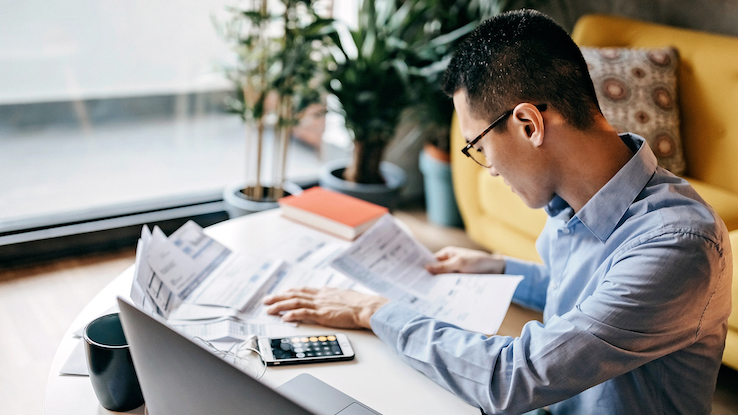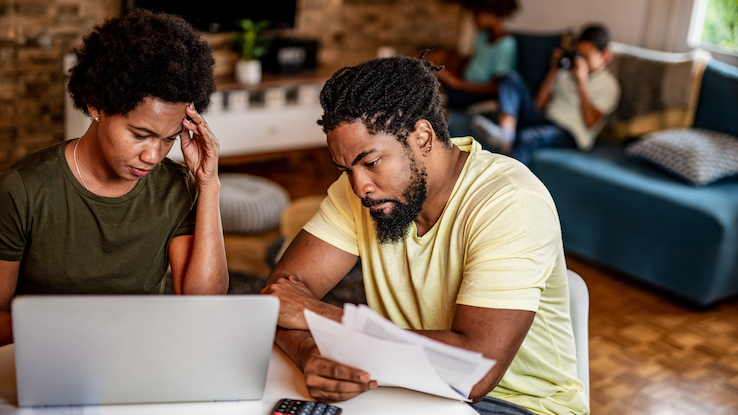
Today, inflation is a major concern for nearly everyone around the world, leading to rising prices and a diminished ability to make money pay for what it once did. While steady levels of inflation naturally and gradually occur over long periods of time, in recent times seems as if inflation has been skyrocketing.
In the United States in particular, the Consumer Price Index climbed 9.1% higher in June 2022 — a shift that easily busts budgets and makes financial planning difficult. Additionally, this type of inflation elevates fears about a potential recession occurring. But what exactly is a recession? Why do recessions happen, and what do they mean for the economy and consumers? If you’re asking questions like this, here’s what you need to know.
What Is a Recession?
A recession is an economic situation marked by a significant decline in activity. Recessions are considered macroeconomic events because their impact is large-scale, often affecting entire countries at a minimum.
The definition of a recession can vary a bit, depending on the agency or economist that’s discussing the concept. Some consider two consecutive quarters of economic decline as the mark of a recession. That may involve declining gross domestic products (GDPs), rising unemployment, falling real income or other indicators. However, some feel this metric alone is insufficient in gauging whether an economy has entered a recession.
Why Do Recessions Happen?
Recessions usually begin when demand for products or services declines and consumer confidence wanes. A variety of conditions can make that happen. For example, rising prices often start tipping the supply and demand scale; when prices rise, fewer people buy these costlier items. This ultimately leads to reduced interest once the general public starts viewing the costs as excessive.
High interest rates can spur a recession, too, because they make borrowing financially unattractive. Stock market declines can reduce access to capital, causing companies to alter their operations or scale back on their growth-oriented goals.
Inflation may lead to a recession as well. If wages don’t keep pace with rising costs of goods, the reduced purchasing power of a dollar, coupled with fears about future price increases, alter consumer behavior. If spending declines at scale, that can eventually lead to a recession.
Changes to specific regulations may also lead to conditions that result in a recession. Wage freezes are a potential cause of a recession, particularly if companies have little choice but to lay people off if they need to reduce their personnel costs. Similarly, crises causing shifts in demand may also induce recessions. The COVID-19 pandemic is a prime example; widespread layoffs and shelter-in-place orders altered the consumer landscape dramatically, causing the economy to contract for a period because people weren’t spending.
It’s important to note that recessions are normal within the broader scope of economic activity. In some cases, they serve as corrections for rapid growth that’s largely unsustainable or that result in negatives that hinder future growth, such as out-of-control price increases.

How Recessions Differ from Depressions
Both recessions and depressions reflect downward economic trends. Each situation can come with reduced economic activity, including lower production and falling GDPs. Additionally, higher unemployment and reduced consumer spending are part of both equations.
Where the two economic events stand apart is usually in their severity. While recessions are challenging, depressions are far more severe by comparison. Unemployment is widespread in a depression, and production of goods and use of services decline substantially. International trade also tumbles, and capital movement slows far more than it would during a recession.
What Happens When the Economy Is in a Recession?
During a recession, certain economic challenges usually happen. As consumer demand slows, companies make fewer sales. This harms their profit, which causes businesses to slow production and, potentially, lay off workers to balance their budgets. In turn, unemployment rises, slowing consumer spending even more.
Along the way, there may be other situations that arise. For example, consumer prices may drop as companies look to boost sales. In recessions in which inflation isn’t a factor, interest rates might go down to encourage more consumer borrowing and spending.
Generally, the economic downturn continues for several months, if more than a year. However, the situation tends to correct over time, particularly as government agencies make changes to recapture a sense of balance.
What Governments Do to Mitigate the Effects of Recessions
If a recession happens, governments typically look at ways to boost consumer confidence and facilitate spending. Often, this means using fiscal policy to reduce financial burdens for households. These changes can make consumers less inclined to save and more interested in buying.
One common option is interest rate reductions. These make borrowing (and debt-supported spending) more attractive and more affordable. Stimulus payments from the government also give households a small windfall that they may feel comfortable spending.
Shoring up unemployment payments can also reduce the impact of a recession. For example, the extra unemployment payments during COVID-19 helped stabilize household budgets, making spending more comfortable for recipients.
Tax reductions are another option. Again, these reduce a significant financial obligation and potentially give households more money to spend. Increases in government spending can also mitigate the effects of a recession. They keep money moving through the economy, offsetting some consumer-related losses.
One challenging issue related to the U.S. economy in 2022 is that a recession may be on the horizon during a period of high inflation. Some of the moves a government may make to combat inflation contradict what’s wise during a recession. For example, increasing interest rates to discourage spending can potentially limit inflation. However, governments want to lower interest rates to battle a recession.
Creating balance is essential. Governments must look at the broader picture to determine which options make sense. This way, they can make moves that lead to improvements without worsening some difficult financial and economic situations.
How Consumers Can Weather Recessions

During financially challenging periods, budgeting is your ally. By staying on top of your income and expenses, you can make adjustments as the economy shifts. Additionally, ensuring you have an emergency fund is wise if you have the means to build one up. That gives you a financial buffer against the unexpected.
If necessary, you can explore options that reduce your saving activities to give you more money to spend. For example, if you’re unable to cover some bills, temporarily reducing the deposits you’re making into your retirement account may give you some breathing room.
If you experience a job loss related to the recession, make sure to file for unemployment immediately. You might also want to contact your creditors to discuss the situation; many have programs designed to assist people who experience certain financial hardships.
Finally, remember that recessions don’t last forever. By making tougher choices earlier on, you make it easier to weather the storm. Then, when the economy starts to improve, you’ll be in the best shape possible, allowing you to move forward with greater ease.





